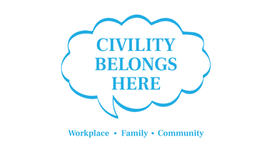- Mar 15, 2019
- 3 min read

Everyone we know will experience pain and suffering at some point in their life. Being "knocked down" is a common denominator of all human beings regardless of age, background or beliefs.
Some setbacks are minor and the majority of people recover quickly. However, few of us are prepared to support someone dealing with major adversities like a life-threatening illness, accident or sudden death of a loved one.
Fortunately, deep inside all of us is the desire to get up and bounce forward after falling down. Positive Psychologists call this quality Post-Traumatic Growth (PTG). Their research suggests that most people who suffer from an unexpected emotional or physical problem will, at some point in their recovery, experience one or more of the following:
New priorities
More strength
A closer connection to God or a Higher Power
A great appreciation for life
More meaningful relationships
This ability to bounce forward has nothing to do with intelligence, will power or attitude. The main requirement for getting better is having at least one person in our life who believes in us and our ability to grow stronger through the crisis.
No one can handle hardship alone. To survive and thrive after being struck by misfortune requires a family member, friend, co-worker, caregiver, or even a compassionate stranger who's willing to join us on our emotional journey.
When we walk down life's rough roads together, we have the opportunity to create a more significant connection and demonstrate how much we really care about the person in pain. However, not many people know how to help a friend who's hurting.
Our natural tendency is to become a cheerleader, coach or spectator to someone caught in a crisis. We rely on our encouraging words or good advice to make a bad situation better, or we leave the person alone hoping time will heal all wounds. All three of those options might make us feel better, but rarely do they add value to the other person.
While we want desperately to take the pain away quickly, there is nothing we can say or do that will accomplish that objective. In fact, trying to rush someone's recovery makes it harder to heal.
If we really want to be helpful to someone in need, the first thing we must do is allow the other person the time to experience and express their pain and sorrow. This form of help is extremely hard to give because it requires a willingness to be present while someone is suffering, the ability to listen with empathy when the other person is ready to speak, and the discipline to only ask questions based on their area of interest...not ours.
The highest performing leaders and sales professionals in all industries know their success is based on getting other people to speak about what's important to them. The same philosophy is true when we're helping a friend in need. Even if we believe our suggestions would be beneficial, offering unsolicited advice is like throwing darts in the dark. The odds of hitting our target are very low.
Helping people bounce forward requires practice and a commitment to really care about the people in your workplace, family and community.
You can start getting better at this skill today by paying special attention to your family and friends. I guarantee you some of them, maybe all of them, are suffering in silence from something. Stop what you're doing when you see them. Close your computer, put your phone away, shut off the TV, and look them in the eye and ask, "How are you really feeling today?" Then just listen with your ears, eyes and heart. When they answer, ask a follow-up question based on what they said or just say, "Tell me more!"
Even if they aren't struggling with something now, you will be laying the foundation to help them bounce forward the next time their world gets rocked.
































Comments